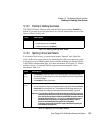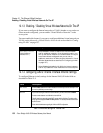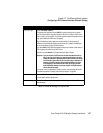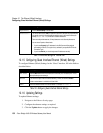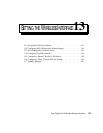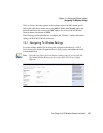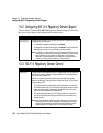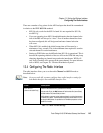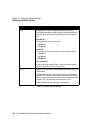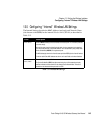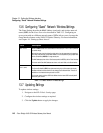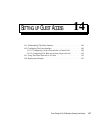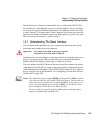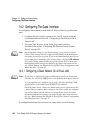
Psion Teklogix 9160 G2 Wireless Gateway User Manual 143
Chapter 13: Setting the Wireless Interface
Configuring The Radio Interface
There are a number of key points for the AP Developer that should be remembered
in relation to the IEEE 802.11h standard:
• 802.11h only works for the 802.11a band. It is not required for 802.11b,
nor 802.11g.
• If you are operating in an 802.11h enabled domain, then the channel selec-
tion of the BSS will always be “Auto”. Even if another channel has been
has been configured, this will be ignored and auto-channel selection
will occur.
• When 802.11h is enabled, the initial bootup time will increase by a
minimum of sixty seconds. This is the minimum time required to scan the
selected channel for radar interference.
• Setting up WDS links may be difficult when 802.11h is operational. This is
because the operating channels of the two APs on the WDS link may keep
changing depending on channel usage and radar interference. WDS will
only work if both the APs operate on the same channel. For more informa-
tion on WDS, see Chapter 20: “Wireless Distribution System”.
13.4 Configuring The Radio Interface
The radio interface allows you to set the radio Channel and 802.11 mode as
described below.
Note: On a two-radio AP, you must configure these radio interface settings for
both Radio Interface One and Radio Interface Two.
Field Description
MAC Addresses
(Shown on two-radio AP only)
Indicates the Media Access Control () addresses for the interface.
On the two-radio AP only, the
MAC
addresses for Radio Interface One (Internal/Guest)
and Radio Interface Two (Internal/Guest) are shown.
A MAC address is a permanent, unique hardware address for any device that represents
an interface to the network. The MAC address is assigned by the manufacturer. You can-
not change the MAC address. It is provided here for informational purposes as a unique
identifier for an interface.
Table 13.1 Radio Interface Settings



